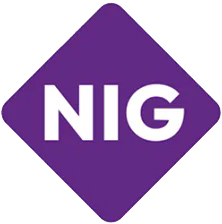We compare quotes from leading insurers
Protect Your Brick and Block Manufacturing Business with Specialist Insurance Coverage
Specialist Insurance for Brick and Block Manufacturing
The brick and block manufacturing industry faces unique risks that standard business insurance policies often fail to address adequately. From heavy machinery breakdowns and raw material contamination to environmental liability and product defects, manufacturing need comprehensive protection tailored to their specific operational challenges.
At Insure24, we understand the complexities of the construction materials manufacturing sector. Our specialist brick and block manufacturing insurance provides comprehensive coverage designed specifically for businesses involved in the production, processing, and distribution of clay bricks, concrete blocks, and related building materials.
Get Your Brick and Block Manufacturing Insurance Quote
Protect your manufacturing business with specialist coverage
Comprehensive Coverage for Your Manufacturing Operations
Manufacturing Equipment Protection
- Clay preparation and mixing equipment
- Brick making and moulding machinery
- Kiln and firing equipment
- Concrete mixing and block forming machines
- Conveyor systems and handling equipment
- Quality control and testing equipment
- Breakdown and accidental damage cover
Stock and Raw Materials
- Clay, sand, and aggregate materials
- Cement and binding agents
- Finished brick and block inventory
- Work in progress protection
- Contamination and spoilage cover
- Temperature damage protection
- Transit and storage coverage
Public and Products Liability
- Third party injury and property damage
- Product defect and failure claims
- Professional indemnity protection
- Recall and withdrawal costs
- Legal defence and court costs
- Worldwide territorial coverage
- Aggregate and per occurrence limits
Environmental and Pollution
- Gradual and sudden pollution events
- Contaminated land remediation
- Groundwater and soil contamination
- Air quality and emissions liability
- Waste disposal and treatment
- Regulatory fines and penalties
- Clean-up and restoration costs
Business Interruption
- Loss of gross profit protection
- Additional working expenses
- Supply chain disruption cover
- Key supplier dependency
- Utilities failure extension
- Contract penalty protection
- Extended indemnity periods
Employers Liability
- Employee injury and illness claims
- Occupational health coverage
- Dust and respiratory conditions
- Manual handling injuries
- Machinery operation accidents
- Heat-related health issues
- Legal defence and compensation
Industry-Specific Risks We Cover
Manufacturing Risks
- Kiln fires and overheating incidents
- Machinery breakdown and production delays
- Raw material quality and contamination
- Power outages affecting production cycles
- Equipment failure during critical processes
- Dust explosions and fire hazards
Product Quality Risks
- Dimensional accuracy and tolerance issues
- Compressive strength failures
- Frost resistance and durability problems
- Colour variation and aesthetic defects
- Batch contamination and recall costs
- Construction project delays and penalties
Environmental Risks
- Clay extraction and quarrying impacts
- Dust emissions and air quality
- Water usage and discharge compliance
- Noise pollution from operations
- Waste heat and energy efficiency
- Habitat and landscape restoration
Supply Chain Risks
- Raw material supply disruptions
- Transportation and logistics failures
- Key supplier dependency issues
- Seasonal demand fluctuations
- Construction industry downturns
- Import/export regulatory changes
Why Choose Insure24 for Your Manufacturing Insurance?
- Industry Expertise - Our team understands the unique challenges facing brick and block manufacturing, from production processes to market dynamics and regulatory requirements.
- Tailored Coverage - We create bespoke insurance solutions that address your specific manufacturing processes, equipment, and business model requirements.
- Competitive Premiums - Access to specialist insurers and competitive rates through our extensive network of manufacturing insurance providers.
- Claims Support - Dedicated claims handling with industry knowledge to ensure fair and prompt settlement of manufacturing-related claims.
- Risk Management - Proactive risk assessment and management advice to help prevent losses and improve your overall risk profile.
- Regulatory Compliance - Coverage designed to meet industry standards and regulatory requirements for manufacturing operations and environmental protection.
Getting Your Brick and Block Manufacturing Insurance
- 1. Initial Consultation - We'll discuss your manufacturing operations, production capacity, equipment, and specific insurance requirements to understand your risk profile.
- 2. Risk Assessment - Our experts will evaluate your manufacturing processes, facilities, and potential exposures to design appropriate coverage levels and terms.
- 3. Quotation Preparation - We'll prepare detailed quotations from specialist manufacturing insurers, comparing coverage options and premium costs.
- 4. Policy Implementation - Once you've selected your preferred option, we'll arrange immediate coverage and provide comprehensive policy documentation.
- 5. Ongoing Support - We provide continuous support throughout your policy term, including claims assistance and annual reviews to ensure adequate protection.
Regulatory Compliance and Standards
Brick and block manufacturing must comply with numerous regulations and standards. Our insurance coverage is designed to support compliance with:
Building Standards
- BS EN 771 (Clay masonry units)
- BS EN 771-3 (Aggregate concrete masonry units)
- CE marking requirements
- UKCA marking compliance
Environmental Regulations
- Environmental permitting regulations
- Industrial emissions directive
- Waste framework directive
- Water framework directive
Health and Safety
- Health and Safety at Work Act
- COSHH regulations
- Manual handling regulations
- Workplace exposure limits
Quality Standards
- ISO 9001 quality management
- ISO 14001 environmental management
- ISO 45001 occupational health and safety
- BES 6001 responsible sourcing

Insure24 understood our brick manufacturing operations from day one. Their specialist knowledge helped us secure comprehensive coverage at competitive rates.
Manufacturing Director, Midlands Brick CompanyWhy Choose Insure24 for Brick and Block Manufacturing Insurance?
- Specialist Knowledge - We understand the unique risks facing brick and block operators
- Comprehensive Coverage - Multiple insurance products designed to work together
- Competitive Pricing - Tailored quotes based on your specific venue and operations
- Expert Support - Dedicated team available when you need us most
- Quick Claims - Fast response when incidents occur
- FCA Regulated - Authorized and regulated by the Financial Conduct Authority
Protect Your Brick and Block Manufacturing Business with Specialist Insurance Coverage
Get Your Brick and Block Manufacturing Insurance Quote Today
Don't leave your brick and block manufacturing exposed to unnecessary risks.
Our specialist team will assess your venue's unique needs and provide a comprehensive insurance solution that protects your business, your customers, and your livelihood.
Call us now: 0330 127 2333
Or get an instant online quote at insure24.co.uk
FREQUENTLY ASKED QUESTIONS
+-
+-
What types of brick and block manufacturing can get coverage?
We provide insurance for all types of manufacturing including clay brick producers, concrete block manufacturing, lightweight block makers, facing brick specialists, engineering brick producers, and decorative block manufacturing.
+-
Is kiln breakdown covered under the policy?
Yes, our manufacturing equipment coverage includes kiln breakdown, with options for business interruption coverage to protect against lost production and additional working expenses during repairs.
+-
What happens if there's a product recall?
Our products liability coverage includes recall costs, covering the expenses of withdrawing defective products from the market, including notification costs, transportation, and disposal expenses.
+-
Are environmental cleanup costs covered?
Yes, our environmental liability coverage includes cleanup costs for pollution incidents, contaminated land remediation, and regulatory compliance expenses.
+-
What about coverage for raw material contamination?
Our stock coverage includes contamination protection for raw materials like clay, sand, and cement, covering both gradual deterioration and sudden contamination events.
+-
What about coverage for raw material contamination?
Our stock coverage includes contamination protection for raw materials like clay, sand, and cement, covering both gradual deterioration and sudden contamination events.
+-
How does business interruption coverage work for manufacturing?
Business interruption coverage protects your gross profit and additional working expenses when production is halted due to covered events like equipment breakdown, fire, or supply chain disruption.
+-
Are seasonal production variations considered?
Yes, our policies can be structured to account for seasonal demand patterns in the construction industry and adjust coverage limits accordingly.
+-
What about coverage for contract penalties?
Our business interruption coverage can include protection against contract penalties when you're unable to meet delivery commitments due to covered losses.
+-
Is dust explosion damage covered?
Yes, dust explosions are typically covered under our property damage section, along with the resulting business interruption and cleanup costs.
+-
What about transportation of finished products?
Transit coverage protects your finished bricks and blocks during transportation to customers, including loading, unloading, and temporary storage risks.
+-
Are quarrying operations covered?
If your business includes clay extraction or quarrying, we can extend coverage to include these operations with appropriate environmental and operational protections.
+-
What about cyber risks for manufacturing businesses?
Our cyber insurance covers data breaches, system failures, and cyber attacks that could disrupt your manufacturing operations or compromise customer data.
+-
How are claims handled for manufacturing businesses?
We provide dedicated claims support with industry expertise, ensuring quick assessment and fair settlement of manufacturing-related claims.
+-
Can coverage be extended for international operations?
Yes, we can arrange worldwide coverage for businesses with international manufacturing operations, exports, or overseas subsidiaries.
+-
What about coverage for research and development activities?
R&D activities including new product development, testing facilities, and prototype manufacturing can be covered under our specialist policies.
+-
Are apprentices and trainees covered under employers liability?
Yes, all employees including apprentices, trainees, and temporary workers are covered under our employers liability protection.
+-
What about coverage for energy costs during interruptions?
Our business interruption coverage can include additional costs such as increased energy expenses when using alternative production methods.
+-
How does the policy handle quality control failures?
Quality control failures that result in defective products are covered under our products liability section, including recall and replacement costs.
+-
Are there discounts for good safety records?
Yes, manufacturing with strong health and safety records and risk management practices may qualify for premium discounts.
+-
What about coverage for alternative accommodation during repairs?
If your premises become uninhabitable due to a covered loss, we can cover the costs of alternative manufacturing facilities or temporary relocation.
+-
How often should coverage limits be reviewed?
We recommend annual reviews to ensure coverage limits reflect current production capacity, equipment values, and business growth.
+-
What documentation is needed for a quote?
We'll need details of your manufacturing processes, equipment schedules, annual turnover, employee numbers, and any previous claims history.
+-
Can the policy be paid in installments?
Yes, we offer flexible payment options including monthly, quarterly, or annual premium payment arrangements.
+-
What about coverage for waste heat recovery systems?
Energy recovery systems and environmental equipment can be covered under our manufacturing equipment protection with appropriate valuations.
+-
Are there exclusions for certain types of clay or materials?
Standard policies cover most common manufacturing materials, though exotic or hazardous materials may require specialist coverage extensions.
+-
What about coverage for customer-owned materials?
Materials owned by customers but in your custody for processing can be covered under our goods in trust or customer goods extensions.
+-
How does the policy handle gradual deterioration?
While sudden and accidental damage is covered, gradual deterioration is typically excluded unless it results from a covered peril.
+-
What about coverage for loss of key personnel?
Key person coverage can protect against the financial impact of losing critical employees such as production managers or technical specialists.
+-
Are there specific requirements for kiln maintenance?
Insurers may require regular kiln inspections and maintenance schedules to maintain coverage, which we'll discuss during your risk assessment.
+-
What about coverage for prototype and sample production?
Small-scale prototype and sample production is typically covered, though large-scale trial runs may require notification to insurers.
+-
How are claims valued for work in progress?
Work in progress is typically valued at cost of materials plus a proportion of labor and overheads to the stage of completion.
+-
What is the average cost of brick manufacturing insurance?
Insurance costs vary based on production capacity, equipment value, and risk factors. Small manufacturing typically pay £2,000-£5,000 annually, while larger operations may pay £10,000-£50,000+ depending on coverage limits and business complexity.
+-
Do I need separate insurance for concrete block manufacturing?
Concrete block manufacturing have specific risks including cement dust exposure and heavy machinery. While similar to brick manufacturing, concrete operations may require enhanced environmental liability and specialized equipment coverage.
+-
Is clay brick manufacturing insurance different from concrete block coverage?
Yes, clay brick manufacturing involves kiln firing, clay preparation, and different environmental risks compared to concrete block production. Each requires tailored coverage for their specific processes and materials.
+-
What insurance do lightweight block manufacturing need?
Lightweight block manufacturing need specialized coverage for aerated concrete processes, steam curing equipment, and unique material handling systems. Environmental liability is crucial due to chemical additives used in production.
+-
Are facing brick manufacturing covered differently?
Facing brick manufacturing require enhanced products liability coverage due to aesthetic requirements and higher value products. Coverage includes color matching issues, surface defects, and architectural specification failures.
+-
What about engineering brick manufacturing insurance?
Engineering brick manufacturing need coverage for precise specification requirements, compressive strength testing, and potential construction project delays if products fail to meet engineering standards.
+-
Do small brick manufacturing need the same coverage as large operations?
Small manufacturing need proportional coverage but similar protection types. Key differences include lower coverage limits, simplified policy structures, and potentially different risk management requirements.
+-
What insurance covers brick kiln explosions?
Kiln explosions are covered under property damage and business interruption sections. Coverage includes explosion damage, fire spread, debris removal, and lost production during kiln reconstruction.
+-
Is insurance required for brick manufacturing equipment leasing?
Leased equipment typically requires comprehensive coverage including accidental damage, theft, and breakdown protection. Lessors often mandate specific coverage levels and may require additional insured status.
+-
What covers clay quarry operations for brick manufacturing?
Clay quarry operations require specialized coverage including environmental liability, restoration bonds, groundwater protection, and equipment coverage for extraction machinery and conveyor systems.
+-
Do brick manufacturing need pollution liability insurance?
Yes, pollution liability is essential for brick manufacturing due to kiln emissions, dust generation, and potential groundwater contamination from clay processing and waste materials.
+-
What insurance covers brick manufacturing quality defects?
Products liability insurance covers quality defects including dimensional inaccuracies, strength failures, and durability issues. Coverage includes recall costs, replacement expenses, and third-party damage claims.
+-
Is cyber insurance necessary for brick manufacturing?
Modern brick manufacturing using automated systems, inventory management, and customer databases need cyber insurance to protect against data breaches, system failures, and production disruption from cyber attacks.
+-
What covers brick manufacturing supply chain disruptions?
Supply chain coverage protects against clay supply interruptions, fuel shortages for kilns, and transportation disruptions. Business interruption extensions cover lost profits during supply chain failures.
+-
Do brick manufacturing need directors and officers insurance?
D&O insurance protects company directors and officers from personal liability claims related to business decisions, regulatory violations, and shareholder disputes in brick manufacturing operations.
+-
What insurance covers brick manufacturing export operations?
Export operations require international coverage including marine cargo insurance, political risk protection, and worldwide products liability coverage for bricks sold in overseas markets.
+-
Is insurance available for sustainable brick manufacturing?
Sustainable manufacturing using renewable energy, recycled materials, or innovative processes can access specialized coverage with potential premium discounts for environmentally friendly operations.
+-
What covers brick manufacturing apprenticeship programs?
Apprenticeship programs require enhanced employers liability coverage, training accident protection, and coverage for inexperienced workers operating dangerous machinery or working near kilns.
+-
Do brick manufacturing need product recall insurance?
Product recall insurance covers costs of withdrawing defective bricks from construction sites, notification expenses, replacement costs, and potential construction project delays.
+-
What insurance covers brick manufacturing joint ventures?
Joint ventures require specialized coverage addressing shared liabilities, cross-indemnification agreements, and protection for both parties' interests in collaborative manufacturing projects.
+-
Is insurance different for automated brick manufacturing?
Automated operations require enhanced machinery breakdown coverage, cyber protection for control systems, and specialized coverage for robotic equipment and computerized production lines.
+-
What covers brick manufacturing research and development?
R&D coverage protects experimental processes, prototype development, testing equipment, and intellectual property. Professional indemnity covers design and specification development work.
+-
Do brick manufacturing need employment practices liability?
EPL insurance protects against discrimination, harassment, and wrongful termination claims. Manufacturing environments with diverse workforces particularly benefit from this coverage.
+-
What insurance covers brick manufacturing waste management?
Waste management coverage includes disposal liability, contamination cleanup, and regulatory compliance costs for manufacturing waste, broken products, and kiln ash disposal.
+-
Is terrorism insurance recommended for brick manufacturing?
Large manufacturing facilities or those in high-risk areas should consider terrorism insurance to protect against property damage, business interruption, and supply chain disruption from terrorist acts.
+-
What covers brick manufacturing contractor liability?
When using subcontractors for maintenance, construction, or specialized services, contractor liability coverage protects against third-party claims arising from subcontractor activities on your premises.
+-
Do brick manufacturing need key person insurance?
Key person insurance protects against financial losses from death or disability of critical personnel such as production managers, kiln operators, or technical specialists essential to operations.
+-
What insurance covers brick manufacturing fleet vehicles?
Commercial vehicle insurance covers delivery trucks, site vehicles, and mobile equipment. Coverage includes goods in transit protection for finished products during transportation.
+-
Is business interruption insurance essential for brick manufacturing?
Business interruption is crucial for brick manufacturing due to long production cycles, seasonal demand, and high fixed costs. Coverage protects profits during kiln repairs or equipment failures.
+-
What covers brick manufacturing regulatory fines?
Regulatory protection covers fines and penalties from environmental agencies, health and safety violations, and building standards non-compliance, though criminal acts are typically excluded.
+-
What types of brick and block manufacturing can get coverage?
We provide insurance for all types of manufacturing including clay brick producers, concrete block manufacturing, lightweight block makers, facing brick specialists, engineering brick producers, and decorative block manufacturing.
+-
Is kiln breakdown covered under the policy?
Yes, our manufacturing equipment coverage includes kiln breakdown, with options for business interruption coverage to protect against lost production and additional working expenses during repairs.
+-
What happens if there's a product recall?
Our products liability coverage includes recall costs, covering the expenses of withdrawing defective products from the market, including notification costs, transportation, and disposal expenses.
+-
Are environmental cleanup costs covered?
Yes, our environmental liability coverage includes cleanup costs for pollution incidents, contaminated land remediation, and regulatory compliance expenses.
+-
What about coverage for raw material contamination?
Our stock coverage includes contamination protection for raw materials like clay, sand, and cement, covering both gradual deterioration and sudden contamination events.
+-
What about coverage for raw material contamination?
Our stock coverage includes contamination protection for raw materials like clay, sand, and cement, covering both gradual deterioration and sudden contamination events.
+-
How does business interruption coverage work for manufacturing?
Business interruption coverage protects your gross profit and additional working expenses when production is halted due to covered events like equipment breakdown, fire, or supply chain disruption.
+-
Are seasonal production variations considered?
Yes, our policies can be structured to account for seasonal demand patterns in the construction industry and adjust coverage limits accordingly.
+-
What about coverage for contract penalties?
Our business interruption coverage can include protection against contract penalties when you're unable to meet delivery commitments due to covered losses.
+-
Is dust explosion damage covered?
Yes, dust explosions are typically covered under our property damage section, along with the resulting business interruption and cleanup costs.
+-
What about transportation of finished products?
Transit coverage protects your finished bricks and blocks during transportation to customers, including loading, unloading, and temporary storage risks.
+-
Are quarrying operations covered?
If your business includes clay extraction or quarrying, we can extend coverage to include these operations with appropriate environmental and operational protections.
+-
What about cyber risks for manufacturing businesses?
Our cyber insurance covers data breaches, system failures, and cyber attacks that could disrupt your manufacturing operations or compromise customer data.
+-
How are claims handled for manufacturing businesses?
We provide dedicated claims support with industry expertise, ensuring quick assessment and fair settlement of manufacturing-related claims.
+-
Can coverage be extended for international operations?
Yes, we can arrange worldwide coverage for businesses with international manufacturing operations, exports, or overseas subsidiaries.
+-
What about coverage for research and development activities?
R&D activities including new product development, testing facilities, and prototype manufacturing can be covered under our specialist policies.
+-
Are apprentices and trainees covered under employers liability?
Yes, all employees including apprentices, trainees, and temporary workers are covered under our employers liability protection.
+-
What about coverage for energy costs during interruptions?
Our business interruption coverage can include additional costs such as increased energy expenses when using alternative production methods.
+-
How does the policy handle quality control failures?
Quality control failures that result in defective products are covered under our products liability section, including recall and replacement costs.
+-
Are there discounts for good safety records?
Yes, manufacturing with strong health and safety records and risk management practices may qualify for premium discounts.
+-
What about coverage for alternative accommodation during repairs?
If your premises become uninhabitable due to a covered loss, we can cover the costs of alternative manufacturing facilities or temporary relocation.
+-
How often should coverage limits be reviewed?
We recommend annual reviews to ensure coverage limits reflect current production capacity, equipment values, and business growth.
+-
What documentation is needed for a quote?
We'll need details of your manufacturing processes, equipment schedules, annual turnover, employee numbers, and any previous claims history.
+-
Can the policy be paid in installments?
Yes, we offer flexible payment options including monthly, quarterly, or annual premium payment arrangements.
+-
What about coverage for waste heat recovery systems?
Energy recovery systems and environmental equipment can be covered under our manufacturing equipment protection with appropriate valuations.
+-
Are there exclusions for certain types of clay or materials?
Standard policies cover most common manufacturing materials, though exotic or hazardous materials may require specialist coverage extensions.
+-
What about coverage for customer-owned materials?
Materials owned by customers but in your custody for processing can be covered under our goods in trust or customer goods extensions.
+-
How does the policy handle gradual deterioration?
While sudden and accidental damage is covered, gradual deterioration is typically excluded unless it results from a covered peril.
+-
What about coverage for loss of key personnel?
Key person coverage can protect against the financial impact of losing critical employees such as production managers or technical specialists.
+-
Are there specific requirements for kiln maintenance?
Insurers may require regular kiln inspections and maintenance schedules to maintain coverage, which we'll discuss during your risk assessment.
+-
What about coverage for prototype and sample production?
Small-scale prototype and sample production is typically covered, though large-scale trial runs may require notification to insurers.
+-
How are claims valued for work in progress?
Work in progress is typically valued at cost of materials plus a proportion of labor and overheads to the stage of completion.
+-
What is the average cost of brick manufacturing insurance?
Insurance costs vary based on production capacity, equipment value, and risk factors. Small manufacturing typically pay £2,000-£5,000 annually, while larger operations may pay £10,000-£50,000+ depending on coverage limits and business complexity.
+-
Do I need separate insurance for concrete block manufacturing?
Concrete block manufacturing have specific risks including cement dust exposure and heavy machinery. While similar to brick manufacturing, concrete operations may require enhanced environmental liability and specialized equipment coverage.
+-
Is clay brick manufacturing insurance different from concrete block coverage?
Yes, clay brick manufacturing involves kiln firing, clay preparation, and different environmental risks compared to concrete block production. Each requires tailored coverage for their specific processes and materials.
+-
What insurance do lightweight block manufacturing need?
Lightweight block manufacturing need specialized coverage for aerated concrete processes, steam curing equipment, and unique material handling systems. Environmental liability is crucial due to chemical additives used in production.
+-
Are facing brick manufacturing covered differently?
Facing brick manufacturing require enhanced products liability coverage due to aesthetic requirements and higher value products. Coverage includes color matching issues, surface defects, and architectural specification failures.
+-
What about engineering brick manufacturing insurance?
Engineering brick manufacturing need coverage for precise specification requirements, compressive strength testing, and potential construction project delays if products fail to meet engineering standards.
+-
Do small brick manufacturing need the same coverage as large operations?
Small manufacturing need proportional coverage but similar protection types. Key differences include lower coverage limits, simplified policy structures, and potentially different risk management requirements.
+-
What insurance covers brick kiln explosions?
Kiln explosions are covered under property damage and business interruption sections. Coverage includes explosion damage, fire spread, debris removal, and lost production during kiln reconstruction.
+-
Is insurance required for brick manufacturing equipment leasing?
Leased equipment typically requires comprehensive coverage including accidental damage, theft, and breakdown protection. Lessors often mandate specific coverage levels and may require additional insured status.
+-
What covers clay quarry operations for brick manufacturing?
Clay quarry operations require specialized coverage including environmental liability, restoration bonds, groundwater protection, and equipment coverage for extraction machinery and conveyor systems.
+-
Do brick manufacturing need pollution liability insurance?
Yes, pollution liability is essential for brick manufacturing due to kiln emissions, dust generation, and potential groundwater contamination from clay processing and waste materials.
+-
What insurance covers brick manufacturing quality defects?
Products liability insurance covers quality defects including dimensional inaccuracies, strength failures, and durability issues. Coverage includes recall costs, replacement expenses, and third-party damage claims.
+-
Is cyber insurance necessary for brick manufacturing?
Modern brick manufacturing using automated systems, inventory management, and customer databases need cyber insurance to protect against data breaches, system failures, and production disruption from cyber attacks.
+-
What covers brick manufacturing supply chain disruptions?
Supply chain coverage protects against clay supply interruptions, fuel shortages for kilns, and transportation disruptions. Business interruption extensions cover lost profits during supply chain failures.
+-
Do brick manufacturing need directors and officers insurance?
D&O insurance protects company directors and officers from personal liability claims related to business decisions, regulatory violations, and shareholder disputes in brick manufacturing operations.
+-
What insurance covers brick manufacturing export operations?
Export operations require international coverage including marine cargo insurance, political risk protection, and worldwide products liability coverage for bricks sold in overseas markets.
+-
Is insurance available for sustainable brick manufacturing?
Sustainable manufacturing using renewable energy, recycled materials, or innovative processes can access specialized coverage with potential premium discounts for environmentally friendly operations.
+-
What covers brick manufacturing apprenticeship programs?
Apprenticeship programs require enhanced employers liability coverage, training accident protection, and coverage for inexperienced workers operating dangerous machinery or working near kilns.
+-
Do brick manufacturing need product recall insurance?
Product recall insurance covers costs of withdrawing defective bricks from construction sites, notification expenses, replacement costs, and potential construction project delays.
+-
What insurance covers brick manufacturing joint ventures?
Joint ventures require specialized coverage addressing shared liabilities, cross-indemnification agreements, and protection for both parties' interests in collaborative manufacturing projects.
+-
Is insurance different for automated brick manufacturing?
Automated operations require enhanced machinery breakdown coverage, cyber protection for control systems, and specialized coverage for robotic equipment and computerized production lines.
+-
What covers brick manufacturing research and development?
R&D coverage protects experimental processes, prototype development, testing equipment, and intellectual property. Professional indemnity covers design and specification development work.
+-
Do brick manufacturing need employment practices liability?
EPL insurance protects against discrimination, harassment, and wrongful termination claims. Manufacturing environments with diverse workforces particularly benefit from this coverage.
+-
What insurance covers brick manufacturing waste management?
Waste management coverage includes disposal liability, contamination cleanup, and regulatory compliance costs for manufacturing waste, broken products, and kiln ash disposal.
+-
Is terrorism insurance recommended for brick manufacturing?
Large manufacturing facilities or those in high-risk areas should consider terrorism insurance to protect against property damage, business interruption, and supply chain disruption from terrorist acts.
+-
What covers brick manufacturing contractor liability?
When using subcontractors for maintenance, construction, or specialized services, contractor liability coverage protects against third-party claims arising from subcontractor activities on your premises.
+-
Do brick manufacturing need key person insurance?
Key person insurance protects against financial losses from death or disability of critical personnel such as production managers, kiln operators, or technical specialists essential to operations.
+-
What insurance covers brick manufacturing fleet vehicles?
Commercial vehicle insurance covers delivery trucks, site vehicles, and mobile equipment. Coverage includes goods in transit protection for finished products during transportation.
+-
Is business interruption insurance essential for brick manufacturing?
Business interruption is crucial for brick manufacturing due to long production cycles, seasonal demand, and high fixed costs. Coverage protects profits during kiln repairs or equipment failures.
+-
What covers brick manufacturing regulatory fines?
Regulatory protection covers fines and penalties from environmental agencies, health and safety violations, and building standards non-compliance, though criminal acts are typically excluded.


 0330 127 2333
0330 127 2333






